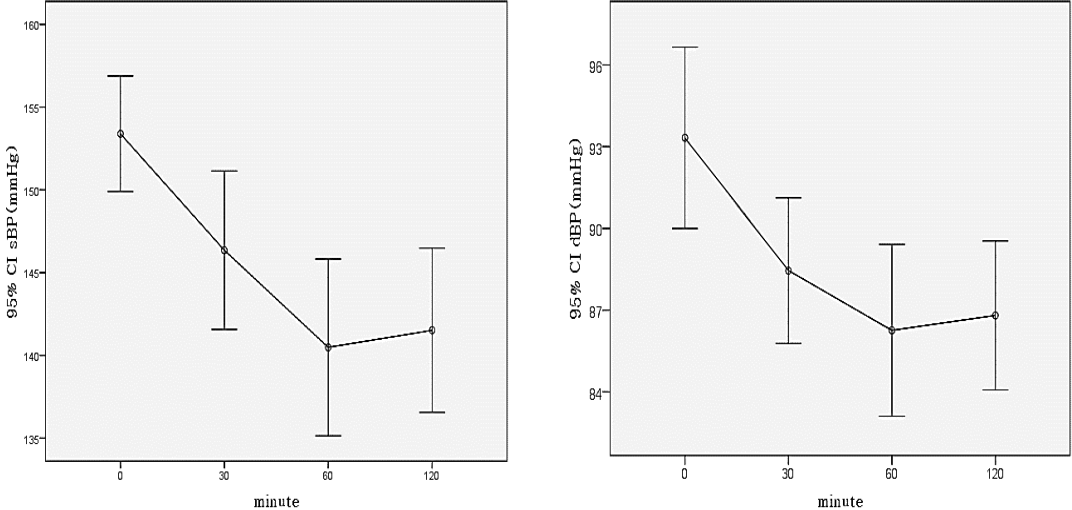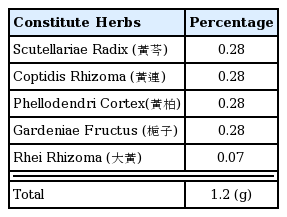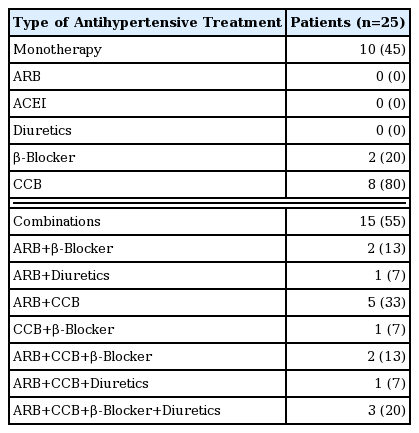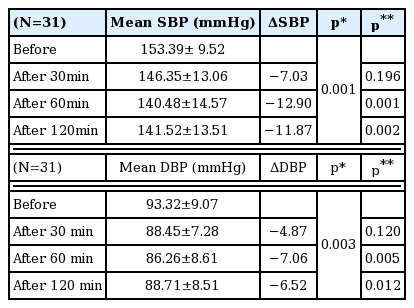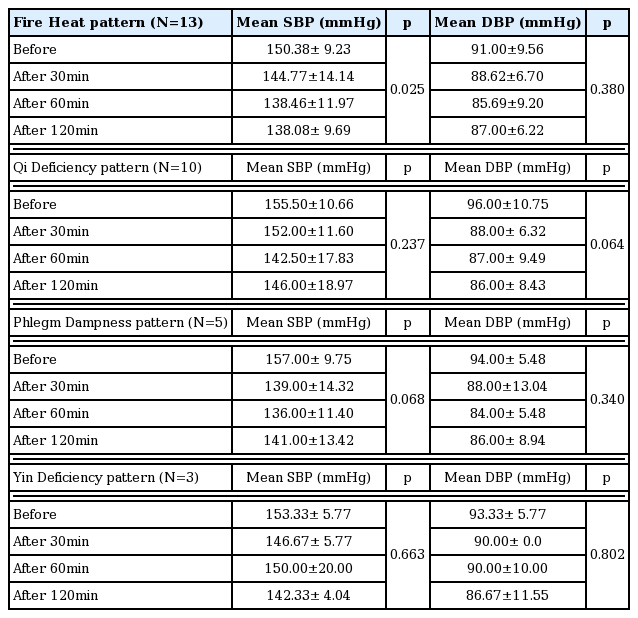References
1. Chung KH, Choi YS, Kim LD, Kim JR, Jung WS, Moon SK, et al. Effects of chunghyul-dan on serum lipids in patients with hyperlipidemia. Korean Journal of Oriental Internal Medicine 2003;24(3):543–550.
2. Yun SP, Jung WS, Park SU, Moon SK, Ko CN, Cho KH, et al. Anti-hypertensive Effect of Chunghyul-dan on Stroke patients with essential hypertension. The American Journal of chinese Medicine 2005;33(3):357–364.
3. Park SU, Jung WS, Moon SK, Ko CN, Cho KH, Kim YS, et al. Chunghyul-Dan (Qingxie-dan) improves arterial stiffness in patients with increased baPWV. The American Journal of Chinese Medicine 2006;34(4):553–563.
4. Park SU, Jung WS, Moon SK, Ko CN, Cho KH, Kim YS, et al. Chunghyul-dan activates NOS mRNA expression and suppresses VCAM-1 mRNA expression in human endothelial cells. Canadian Journal of Physiology and Pharmacology 2005;83(12):1101–1108.
5. Ko CN, Park IS, Park SU, Jung WS, Moon SK, Park JM, et al. Neuroprotective effect of Chunghyul-dan (Qing Xue Dan) on hypoxia-reoxygenation induced damage of neuroblastoma 2a cell lines. Chinese Journal of Integrative Medicine 2013;19(12):940–944.
6. Jung WS, Kwon SW, Cho SY, Park SU, Moon SK, Park JM, et al. The effects of Chunghyul -dan(a korean medicine herbal complex) on cardiovascular and cerebrovascular diseases: A narrative review. Evidence-Based Complementary and Alternative Medicine Volume 2016;2016:1–10.
7. Yun SP, Kim LD, Lee SH, Kim EJ, Park YM, Jung WS, et al. Effects of Chunghyul-dan (Qingxue-dan) on stroke patients with stage 1 hypertension -Preliminary study for optimal dose-. The Journal of Internal Korean Medicine 2004;2004:74–81.
8. Collins R, Peto R, MacMahon S, Hebert P, Fiebach NH, Eberlein KA, et al. Blood pressure, stroke, and coronary heart disease. Part 2: short term reductions in blood pressure: overview of randomized drug trials in their epidemiological context. Lancet 1990;335:827–838.
9. Kim CH, Kim YS, Park YK. Management of Hypertension in Primary Care. Korean J Fam Pract 2012;2:8–14.
10. Shin MS, Han CH, Kim BY, Kim KJ, Park SH, Choi SM. A study on the recognition and actual condition of Korea medical doctors in oriental medical care of hypertension. The journal of Korean Acupuncture & Moxibustion Society 2008;25(6):23–33.
11. Kwon SW. Development of standardized predictive models for Korean Medical Diagnostic Pattern-identification in stroke subjects Seoul: Kyunghee Univ; 2016.
12. Law MR, Wald NJ, Morris JK, Jordan RE. Value of low dose combination treatment with blood pressure lowering drugs: analysis of 354 randomized trials. BMJ 2003;326:1–8.
13. Ettehad D, Emdin CA, Kiran A, Anderson SG, Callender T, Emberson J, et al. Blood pressure lowering for prevention of cardiovascular disease and death: A systematic review and meta-analysis. Lancet 2016;387:957–967.
14. Kopunek SP, Michael KM, Shaughnessy M, Resnick B, Nahm ES, Andrew Goldberg JW, et al. Cardiovascular Risk in Survivors of Stroke. American journal of preventive medicine 2007;32(5):408–412.
15. Tao Wang. Wai Tai Mi Yao Fang First editionth ed. Taipei: Taiwan shang wu yin shu guan; 1983. p. 542.
16. Kook YB. Effect of Hwangryunhaedok-tang on blood pressure and renal functions in spontaneously hypertensive rats. The Korean Journal of Oriental Medical Prescription 2002;10(1):113–129.
17. Kim YS, Jung EA, Shin JE, Chang JC, Yang HK, Kim NJ, et al. Daio-Orengedokuto inhibits HMG-CoA reductase and pancreatic lipase. Biological and Pharmaceutical Bulletin 2002;25:1442–1445.
18. Sanae F, Komatsu Y, Amagaya S, Chisaki K, Hayashi H. Effects of 9 Kampo medicines clinically used in hypertension on hemodynamic changes induced by theophylline in rats. Biological and Pharmaceutical Bulletin 2000;23(6):762–765.
19. Sanae F, Komatsu Y, Chisaki K, Kido T, Ishige A, Hayashi H. Effects of San’o-shashin-to and the constituent herbal medicines on theophylline -induced increase in arterial blood pressure of rats. Biological and Pharmaceutical Bulletin 2001;24(10):1137–1141.
20. Hwang DS, Kim HG, Kim TM, Lee TH, Oh MS. The Effect of Hwangryunhaedok-tang on the c-fos Level in mice exposed to heat stress. J Korean Obstet Gynecol 2014;27(3):1–11.
21. Kim HJ, Bae HS, Park SU, Moon SK, Park JM, Jung WS. Clinical approach to the standardization of oriental medical diagnostic pattern identification in stroke patients. Evid Based Complement Alternat Med 2011;2011:1–7.
